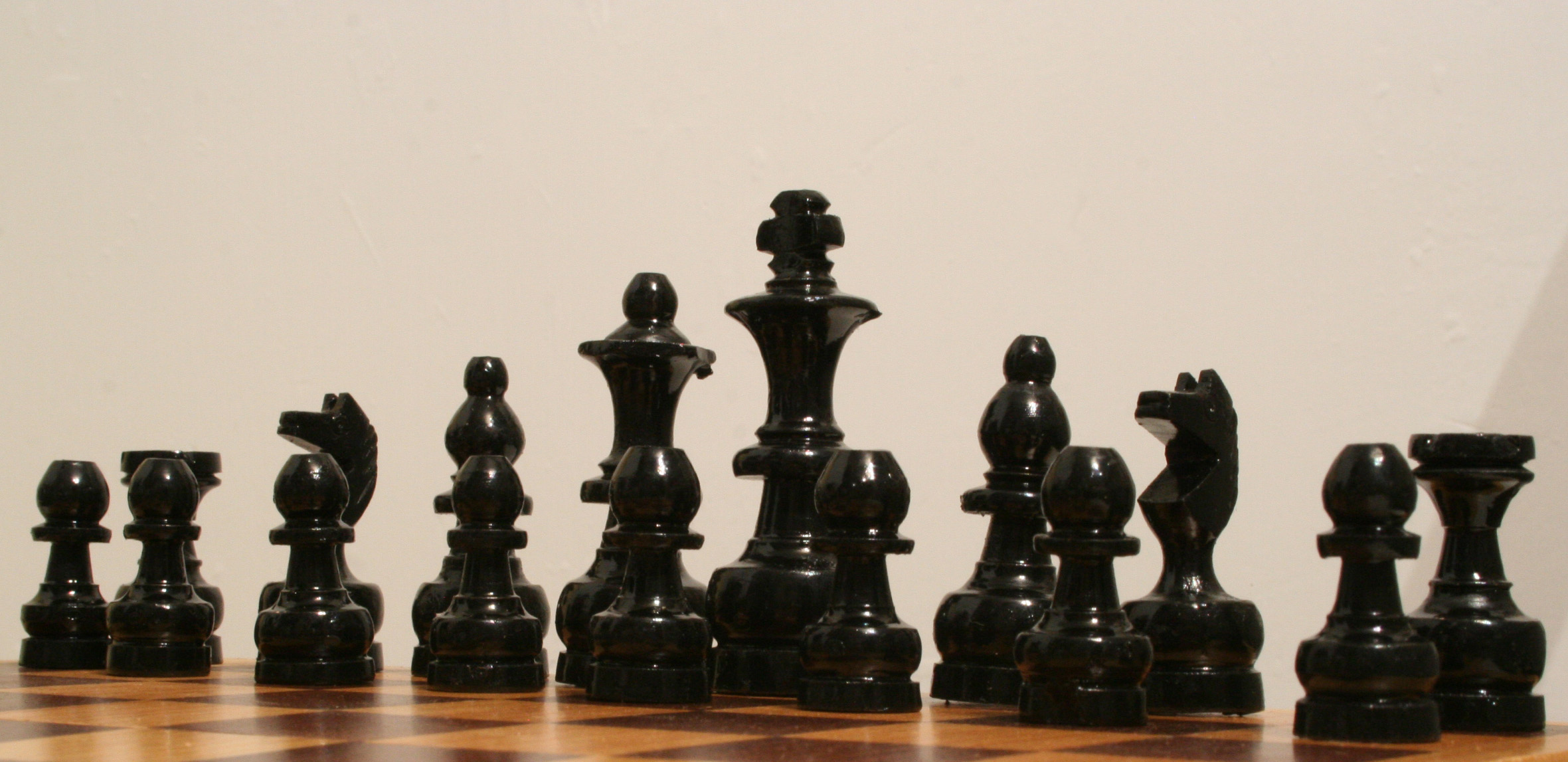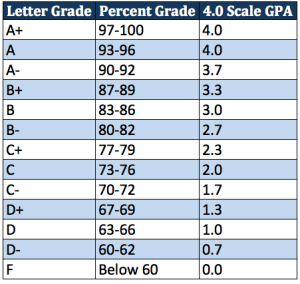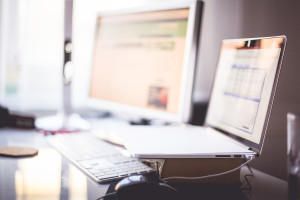I’ll be doing a series titled How To Study In College. The first post in the series is The Chip Away Strategy.
Does this scenario sound familiar? You have an upcoming test and you plan out how many hours you should study. You decide that five hours straight the night before, and five hours straight the day of the exam will be more than enough. You study in two long stretches. Now you are confident for the test because you prepared 10 good hours. Then, you take the exam. You struggle and don’t do well. You get frustrated that you spent so much time studying and didn’t get rewarded.
But, is studying for long periods of time effective studying? No, it’s not. Will studying like this get you an A on the exam? Probably not, and I’ll tell you why.
Total Study Time
Total study time includes all the time spent on the phone, talking to friends, getting coffee, going to the bathroom, and mindlessly preparing with an exhausted brain. After doing bad on an exam, people say, “I studied forever,” as their reasoning that a teacher or class sucks.
Total study time is dangerous because it gives a false sense of adequate preparation going into an exam. Like the example above, it is easy to believe with confidence that 10 hours of studying is enough to do well, or even ace the test. But, so often total study time is done in one or two long periods, where students soon become tired and unfocused. It’s only in the first and second hour of studying that students can best focus and prepare to improve their memory and knowledge of the material. Then the brain gets tired and unfocused, and the rest of the time studying produces little to no results. So, while they believe they studied hard for 10 hours, in reality they only have a couple hours of good preparation for the test. Total study time tricked them.
When your brain starts to get tired, it’s easy to mindlessly study and take shortcuts. You could go through vocabulary words, get one wrong, and then think, “I should have known that,” as you flip the flash card in the correct pile because you don’t want to go through them another time. Or you could skim a reading that you need to read in detail. The point is you can’t effectively study with a tired brain. Unfocused studying also leads to bad habits that are hard to avoid the next time you study. And guess what? You’re setting yourself up for a bad exam if you study unfocused, and then try to focus when you take the exam. Your brain hasn’t practiced processing the information when it is focused.
A Difficult Learning Experience
I once studied around 30 hours for a Microbiology exam my freshman year. I studied every night, all night, for the entire week. I remembered thinking something along the lines of pain is temporary, my GPA is forever. I couldn’t believe when I got the exam back and received an 84%. I thought something was wrong with me. I had done everything I could, so I thought, and received a B.
Looking back, I studied so poorly for that exam. I (foolishly) put studying last on my day’s activity list all week, because I thought since I was spending so much time that I could afford to. My brain had to process and react in my classes, with friends, and on my other homework, all before I began studying for the Microbiology exam. I probably effectively studied four or five hours out of the 30 total hours. No wonder I didn’t score as high as I wanted. And I committed dumb exam mistakes.
Focused Study Time
Excuse me if this is obvious, but focused study time is the amount of time you spent effectively studying without any distractions and with a fresh brain.
Focused studying is one of the most important things to learn in college, because it gives you more production while taking less time. When you start studying and your brain is fresh, you’re preparing at a high-level. So, for example, let’s say your mental inferences are firing at 100% during the first hour. Then during hour two, your brain is working around 90%. At this point, you’re slowing down a little but still preparing well. At hour three, your brain is tired and down to 50% of the production as hour one. Study past hour three and your brain is fried.
Example comparison:
Student 1, who studies 12 hours total in the night of and the morning before the exam:
Percent Production
During the night of the exam: 100% (hour 1), 90% (hour 2), 50% (hour 3), 25% (hour 4), 10% (hour 5), 5% (hour 6) = 280% production
During the day of the exam: 100% (hour 7), 90% (hour 8), 50% (hour 9), 25% (hour 10), 10% (hour 11), 5% (hour 12) = 280% production
Student 1: studied 12 hours, 560% production
—–
Student 2, who studies 8 hours total—broken down into four days of two hours:
Percent Production
Four nights before the exam: 100% (hour 1), 90% (hour 2) = 190% production
Three nights before the exam: 100% (hour 3), 90% (hour 4) = 190% production
Two nights before the exam: 100% (hour 5), 90% (hour 6) = 190% production
The night of the exam: 100% (hour 7), 90% (hour 8) = 190% production
Student 2: studied 8 hours, 760% production
—–
Student 2 was more productive by 200%, studied four hours less, and avoided unnecessary stress and anxiety.
Prepare for your exam in short periods of two to three hours, not long extended periods, and you’ll utilize your time because you’ll study only at a high-level. This way, you can confidently go into the exam knowing that you prepared right, and you didn’t waste time where your brain barely processed information. Focused studying with breaks in between will get you a high GPA, without sacrificing fun college experiences. Study smarter, not harder.
If you didn’t plan ahead and have an exam the next day, study for three hours. Then take time to relax and rest. Eat and drink for energy. Then study for two more hours and call it a night. Wake up early and repeat the same process as the night before. This is a much better effective studying technique than staying up all night.
If you can master focused production, you’ll run laps around your competition while you enjoy college.
Tips For Effective Focused Studying
1) Take a 10-minute break after every 50-60 minutes of studying.
Breaks are important for keeping your brain fresh.
2) Study in the library by yourself.
A cubicle in the library eliminates a loud TV, talking roommates, and the comfort of your bed. After you do focused studying, spend the extra time you saved to catch up with your friends.
3) Turn your phone off.
Your phone is the number one enemy in the way of effective, focused studying. The instant access to texting, Internet, or social media apps is always more desirable than studying. If you don’t trust yourself, put your phone in your backpack.
4) Exercise, eat healthy, and rest.
The extra energy from these three activities is the gas to your focused machine.
5) Study during your productive time.
Most people find mornings and afternoons as their most productive time, because they have more energy. But, if you’re naturally more productive at night, study then.
For more ways to ace college, check out my bestselling book How To College!




Thanks!i really need this 🙂
Happy to help, Mohd! Good luck with everything.
I just had my exam results and i flunked in most papers. I thought studying long enough a night before a paper guaranteed an A. Learned alot from your article
Man, that’s never a good feeling. Utilize what you learned and you’ll do better next time!
This helped quite a lot thankyou! do you have any tips on how to catch up with work if I’ve fallen behind due to a whole weeks worth of sickness?
I’m happy to help… And yes, read this post: https://takeyoursuccess.com/how-to-catch-up-in-a-class-after-falling-behind/
Thank you so much. This is very helpful.
I’m glad you took some value out of this.